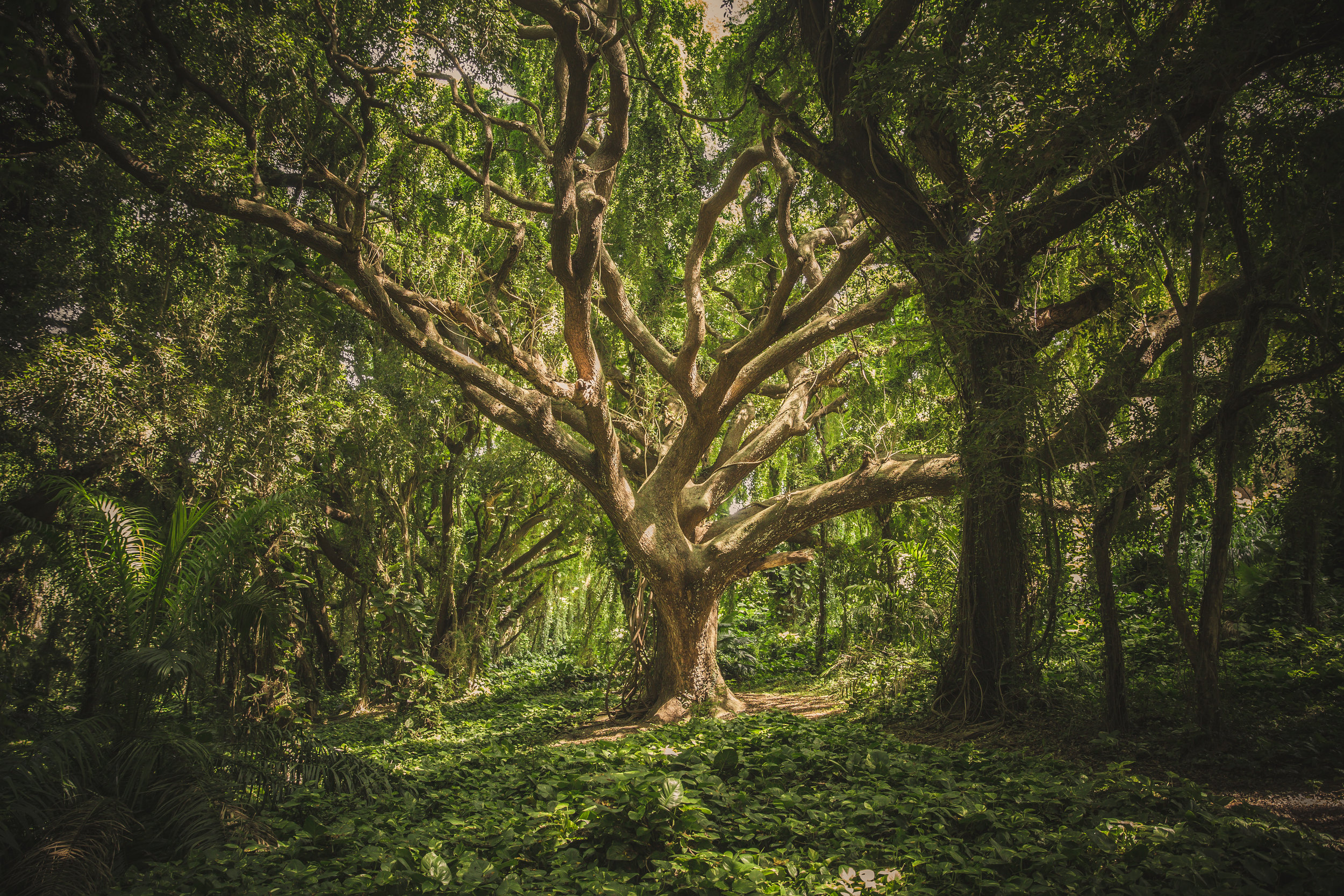By Leyla Acaroglu
There is this painful, old-school mental image of a ‘treehugger’ — an almost derogatory term used to describe someone who cares about the environment so much that they just hug trees. I usually make jokes when I do talks about how I love the planet but I don’t hug trees, as they have spiders and could ruin my clothes. But silly jokes of my spider fears aside, my perspective on trees has changed a lot over the last couple of years, as I took on an abandoned olive farm, which is now the CO Project and started to regenerate it. The farm has some 150 established trees (and a couple hundred new babies we have planted), all of which I am now a custodian of. As a result, my appreciation of and fascination with trees has grown immensely. I still have not hugged a tree per se, but I certainly do talk to them!
The CO Project Farm olive and citrus trees
The magic of trees
Firstly let me tell you how trees really are magical. Some of my several hundred year old olive trees have no insides, just a bark shell, and yet they burst into life every spring and drop a bounty of olives every year, despite looking as though they have no heart. Each autumn, when the weather cools, they become homes to all sorts of moss and animals and morph into these grandparent-like figures for all the life that needs shelter. The same goes with the fruit trees — they drop their leaves every year at the end of summer and appear to go to sleep. But, I have noticed that they are actually using all their energy to make tiny baby apples, apricots, or plums, and then, come summer, they burst with delicious delights that nourish and sustain our bodies.
Trees and humans have a very intrinsic relationship. We obviously eat their fruits, use their wood, and rely on them to convert carbon dioxide to oxygen and purify our air. To top it all off, they regulate the climate, keep soils from eroding, provide habitat to other animals, and if all that is not enough, they also apparently ‘talk’ to each other via secret underground networks!
So, when we decided to host out 10th Emerging Leaders UnSchool Fellowship program this upcoming November in Kuching, Borneo, Malaysia — a very rainforested area of the world — I wanted to discover more about how deforestation is affecting systems. You may have already heard of the issues with palm oil and the clear-felling that occurs to feed the world’s insatiable appetite for cheap oils (that end up in cookies, soaps, and many industrial processes), so in this week’s journal article, I wanted to explore the impact that deforestation has on all of us and find out more in preparation for our Fellowship.
What Causes Deforestation?
Globally, we have cut down 3 trillion trees since industrialization, and it is assumed there are 3 trillion still standing. Since humans started using forest products, over 46% of trees have been cut down, adding to the climate crisis since, as we pump more carbon dioxide into the atmosphere, we also cut down the things that absorb and convert it!
Farming, grazing of livestock, mining, and drilling combined account for more than half of the world’s deforestation. The main drivers, however, for the destruction of the hyper-diverse Malaysain rainforest (home to the delightful orangutans) is paper pulp logging and palm oil, the latter being a cash crop that creates one of the cheapest forms of lubricants on the global market. There is also a significant amount of illegal logging for hardwoods that then end up making their way into furniture and outdoor decking. There are some international policies to attempt to curb this trend, but poverty and economic needs often drive people to find ways of still exploiting the forests.
The immediate impacts of this, such as biodiversity loss and wildfires which often affect monocultures rather than natural ecosystems, are increasing in intensity and further increase the loss of trees. Around the world we have seen many intense and deadly forest fires such as in California where over 100 million trees were lost in the 2018 fires. These kinds of extreme fires will only increase with the threat of climate change. Sadly, there are claims that fires are lit intentionally and even articles about firefighters starting fires so that they could get paid to put them out!
Overgrazing of native animals can also cause tree loss, but nature seems to have some smart resistance, such as the case of Acacias in Africa that developed a toxin in their leaves to kill off the over populated Antelope. Incidentally, the reduction in shepherds’ animals munching through the undergrowth has been attributed to the severity of the fires. However, the grazing of farm animals, such as goats (who I can confirm will eat anything, as we have 4 on the farm and if they had it their way, they would eat every leaf they could get their teeth on!) is part of some fire prevention strategies.
The Systems Impacts of Deforestation
Trees are a keystone species in our shared planetary ecosystem, so cutting them down and destroying their systems is a detrimental blow to any ecosystem — specifically, us. From climate impacts to desertification, soil erosion, fewer crops, flooding, increased greenhouse gases, and loss of home lands for indigenous people, there is a whole slew of systemic impacts related to deforestation.
Not only is deforestation directly impacting us humans, but the destruction of natural habitats for plants and animals is another systemic effect that must be addressed. 80 percent of Earth’s land animals and plants live in forests, and right now scientists say we are going through the sixth great extinction on Earth, mainly due to the activities of humans (like deforestation) and overconsumption. Consider what happens to the soil when the trees are cut down. Tree canopies are a little bit like the hair on your head, which protects your skin from the sun and helps to keep you cool. Without dense tree coverage, the soil is exposed to the more sun which changes the types of things that can grow. If you have ever been in a forest, you would know that the temperature is completely different; we seek shade under trees when having picnics because they do a brilliant job of protecting what's underneath them. The loss of these tree canopies has been detrimental, with, in the last 40 years, roughly 40-50% of species going extinct and the greatest losses being in Asia and Australia (where I’m from). Biodiversity is what makes Earth, Earth. Without diversity, we have weak systems that are susceptible to disease — which then breeds a new onslaught of system impacts.
Something else happens with the loss of these tree canopies, too — all of the carbon dioxide that the trees were storing as they grew is released back into the atmosphere when the trees are burned. And this is no minor source of climate problems — the current deforestation rate is outpacing the sum of all the world’s cars and trucks on the road to add more carbon dioxide to the atmosphere than automobiles do. Additionally, it’s striking to consider how beneficial trees are to carbon mitigation. One estimate states that tropical tree cover can provide 23% of the climate mitigation needed to reach the Paris Climate Goals by 2030. But with the current profitability connected to the consumption habits of us 7.6 billion humans here on Earth, it’s going to take a true systemic effort to preserve our forests as long-term investments into sustainability versus the current short-term profits connected to extracting forest-related resources for goods.
How We Can Change our Destructive Habits?
Yes, it is complicated. The drivers of clear felling, forest fires, and land clearing are many, from paper production, through to grain production for the livestock industry (many drivers for the clearing of Brazilian rainforest), wood products, the need for cash crops, or even the increase in the world’s desire for coffee and chocolate. These are all directly linked to consumption, which offers some scope for individual choice preferencing, so needless to say, the issues are multilayered.
Forests cover 30% of the world's surface (in contrast oceans cover 71%), so there is much scope for reversing the destructive nature of deforestation. India and China, two of the world's most populated countries, have made huge efforts to reforest, a solution that can have many benefits, like purifying drinking water, reducing carbon in the atmosphere, cleaning the air from pollutants, and providing economic opportunities for current and future generations.
On a personal level, you can protect the trees you have some sort of custodianship over. Buy land and allow it to rewild — take inspiration from the famed children’s book author Beatrix Potter, who purchased 14 farms and more than 4,000 acres of land in England. This kind of foresight can help to protect vulnerable land from development and support your own kind of carbon sink. If you can’t buy land (it's surprising how cheap abandoned farmland can be!), you can certainly help by planting trees in your community or supporting organizations like this one that are replanting forests impacted by deforestation.
Of course, making informed choices when it comes to consumption is an important everyday micro-action that you can begin taking immediately. Opt for plant-based proteins instead of meat (meat production is a big driver of deforestation), go paperless as much as possible, skip products that contain palm oil (unless you have concrete proof it’s been sustainably sourced), advocate for the rights of indigenous people, burn firewood responsibly, and continue staying connected to a community of like-minded changemakers who give a shit about protecting the world’s resources so that we have a future that works better for us all! If you really want to level up, learn more about this issue and get connected to people making change, then join me this November in Malaysia at our 10th Emerging Leaders Fellowship program.
Applications are now open for our 10th Emerging Leaders Fellowship program. Get yours in today to learn more about this issue and to discover the tools for making a positive impact by design. Applications due by July 12. Apply here >
















